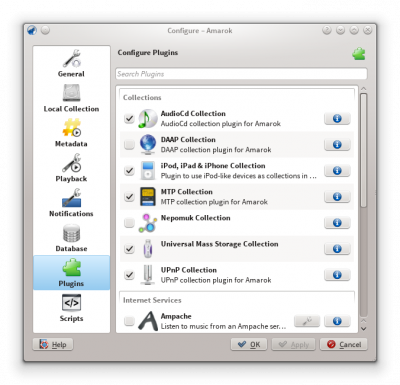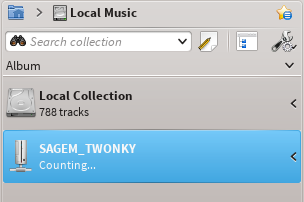Amarok/Manual/Organization/Collection/RemoteCollections/UPnP/en: Difference between revisions
Appearance
Updating to match new version of source page |
Updating to match new version of source page |
||
| Line 15: | Line 15: | ||
[[File:Amarok_2.8_UPnP_collection.png|center]] | [[File:Amarok_2.8_UPnP_collection.png|center]] | ||
The UPnP feature depends on '''KDE's''' UPnP media server support. | The UPnP feature depends on '''KDE's''' UPnP media server support. As of now (2015) there is no working UPnP kio-slave available. | ||
{{Prevnext2 | {{Prevnext2 | ||
Latest revision as of 21:52, 17 July 2015
Universal Plug and Play (UPnP) / DLNA
UPnP is a set of protocols to share media on the network. It is also supported by a wide range of residential gateways and Network Attached Storage devices. UPnP support is now commonly marketed as DLNA.
Amarok has a built-in UPnP media share client so it can play tracks shared on the network. To enable it, use and check the box by the UPnP Collection plugin.

When a media share is discovered it will be shown in Local Music.

The UPnP feature depends on KDE's UPnP media server support. As of now (2015) there is no working UPnP kio-slave available.
